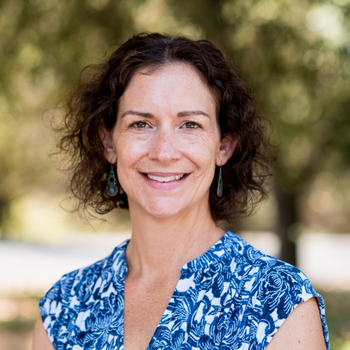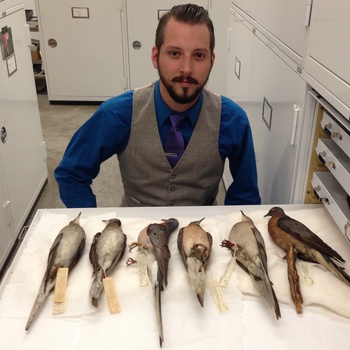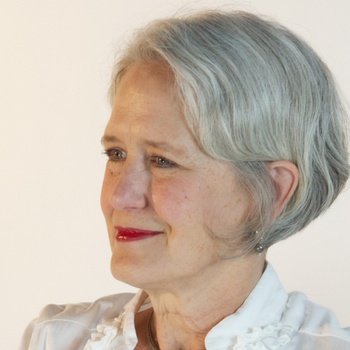Humanity and the Deep Ocean
James Nestor

October 7, 02014
In DEEP: Freediving, Renegade Science, and What the Ocean Tells us about Ourselves James Nestor follows extreme athletes, adventurers, and scientists as they plumb the limits of the ocean's depths and uncover startling discoveries that, in many cases, redefine our understanding of the ocean and ourselves.
Freedivers dive without scuba gear, holding their breath longer than had been thought humanly possible, and thus confirming the legendary feats of Japanese pearl divers. Nestor explains that the human body actually adapts in real time as it reaches depths where we’d expect it to be crushed. For experienced freedivers a “master switch” flips and they are able to handle the pressure and their body automatically ration oxygen to safely extend their time below.
But free diving is only the beginning. Nestor explains how citizen scientist freedivers interact with sperm whales and other sea life in ways that are not possible using other technologies. They can swim within feet of these giant mammals. And the whales amazingly reorient themselves as if to start a conversation. In fact they send clicks (recordings of which Nestor plays onstage) which are used for communication, not geolocation. When you realize how developed the brains of these creatures are, it’s not surprising that they would have something to say. And considering the possibilities of communicating with dolphins and whales is something that Nestor feels strongly about (as he mentioned in an Ignite Talk he gave for us in 02016).
There’s even more in this talk including evidence of how some humans use extra-sensory capabilities that are employed by sharks and whales: magnetic sensitivity and echolocation. In languages that feature cardinal directions rather than relative ones, native speakers always orient themselves correctly in numerous studies--no compass needed. Humans can teach themselves echolocation, and in fact he introduces us to a group of young blind man who uses clicks to enable him to ride a bike through the city and tell one object from another.
Overall Nestor's talk shows us that the wonders of the ocean may be more accessible and relatable than we’d ever imagined them to be.
James Nestor takes us into the ocean's depths with freedivers who go death-defyingly hundreds of feet below the surface without scuba gear. In researching it Nestor found there's much more to freediving than a thrillseeker's pastime. He details compelling insights about not only the ocean and its creatures, but about our own human senses and biology whic await us in the Deep. From October 02014.
Upcoming Talks
Videos

Johanna Hoffman
Speculative Futures: Design Approaches to Foster Resilience and Co-create the Cities We Need
October 12, 02022

Creon Levit
Space Debris and The Kessler Syndrome: A Possible Future Trapped on Earth
April 26, 02022

Brittany Cox
Horological Heritage: Generating bird song, magic, and music through mechanism
August 20, 02019

Elizabeth Lonsdorf
Growing Up Ape: The Long-term Science of Studying Our Closest Living Relatives
April 30, 02019

James Holland Jones
The Science of Climate Fiction: Can Stories Lead to Social Action?
January 29, 02019

Kevin Kelly, Stewart Brand, Alexander Rose
Siberia: A Journey to the Mammoth Steppe
January 22, 02019

Caroline Winterer
The Art and Science of Deep Time:
Conceiving the Inconceivable in the 19th Century
September 4, 02018

Esther Dyson
The Short Now: What Addiction, Day Trading, and Most of Society’s Ills Have in Common
July 17, 02018

Hannu Rajaniemi
The Spirit Singularity: Science and the Afterlife at the Turn of the 20th Century
July 10, 02018

Shahzeen Attari
Facts, Feelings and Stories: How to Motivate Action on Climate Change
June 26, 02018

Renée DiResta
Disinformation Technology: How Online Propaganda Campaigns Are Influencing Us
April 10, 02018

Scott Kildall
Art Thinking + Technology: A Personal Journey of Expanding Space and Time
August 15, 02017

Miles Traer
The Geological Reveal: How the Rock Record Shows Our Relationship to the Natural World
June 27, 02017

Andrew Lakoff
How We Became “Unprepared”:
Imagining Catastrophe from the Cold War to Bird Flu
May 30, 02017

Jennifer Petersen
Why Freedom of Speech Is More Than Speech:
Expressions in Media and Code
April 18, 02017

Tara Behrend
The Psychology of Surveillance:
How Being Watched Changes Our Behavior
February 28, 02017

Ben Novak
The Next Flight of the Passenger Pigeon: Engineering Nature's Engineers
September 27, 02016









































































